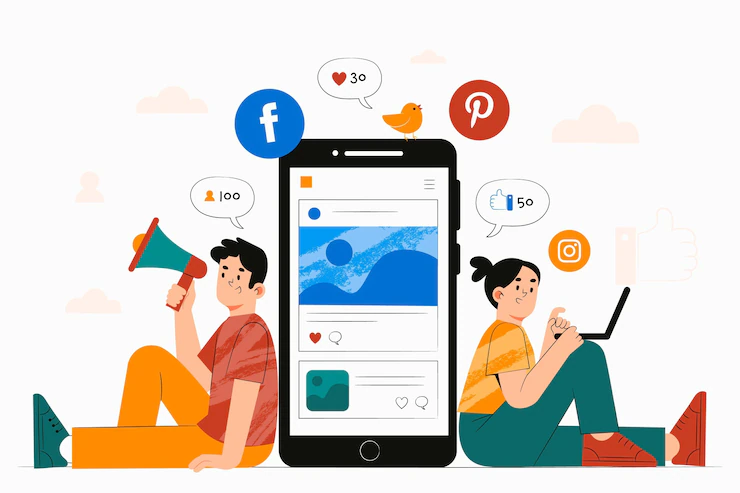Social media is attractive because human beings are naturally social beings. We love to connect, share and discuss. But it is clear that at times, these emotions take a wrong turn in the remote, various online settings where social media is located.
One of the major issues with the use of social media – one that is often misunderstood or misunderstood – is the cyber security risk it poses. This risk does not only affect individuals; As an employer, the social media behavior of your employees can pose significant risks to your organization.
It is important to understand how dangerous actors gather information about their employees from social media platforms, especially in digital artworks, relationships, and personally identifiable information across platforms.
1. Disinformation on Social Media Leads to Business Risk
Attackers are taking advantage of misinformation and misinformation. For example, malicious actors can take advantage of a recent data breach by sending an email, such as, “Your account has been compromised” or “Your account is locked out.” Click here to change your password. “
The attackers are taking advantage of the individual’s decision cycle to gain access to corporate computer systems, sensitive information, bank accounts, and more.
Social media might help you get the fame you need. But, at the same time, they are the holes that are responsible for leaking your personal information to others. That said, visit website to know more.
2. Relationships Can be Leveraged for Information
In addition to what you share and what others share with you, your social media connections also pose potential risks. When you post something and your friends like it, comment on it or reshare it, it’s now a relationship that is exposed if that post is publicly available.
Even if your accounts are private, there is a risk. For example, your Facebook profile picture is public, and some of your connections may comment on your profile picture if you changed it recently.
Even if you do not share your interests, place, or educational history, an attacker can perform pattern analysis in all relationships or life pattern analysis. They can get information about you from your relationships, whether you share it or not. In fact, it is one of the most valuable tactics of attackers.
3. Bad actors can collect data in forums
Every bit of information you find on your social media accounts is a potential data point, but it’s not just about the content you share. Bad actors can collect information from the memes and quizzes you fill out. Replying to memes like “Your secret agent name is your mother’s first name and your favorite color” seems to be harmful.
What else do those answers remind you of? What about the security questions that sites ask for password recovery? First pets, first cars, favorite colors, and more. It has been shown that some of these quizzes have been created by dangerous actors to gain access to your online accounts.
One or two bits of information are unlikely to be dangerous, but if you become the target of an attack, the bad actor will look for more information in your social media accounts. Any content that is publicly available is of potential use. For example, if bad guys can easily find your business email address, they can use that information to try a business email agreement attack.
4. Oversharing poses a risk to curated phishing
Everyone knows someone within their social media circle who shares – they’re virtual social butterflies with lots of “friends” who offer ongoing commentary on everything they do, wherever they are. They are leaving, presenting every personal problem.
What most people don’t realize is that this type of oversharing can expose a person to the dangers of spear phishing and similar attacks. Why? The more information an attacker can gather about you, the more likely they are to be able to create a realistic-looking email or text that you can associate with.
For employers evaluating a potential employee, a habitual over-sharer is at greater risk for phishing attempts, which in turn puts the company at risk. And that guides to the next point.
5. Everyone’s information is valued
Once you complete a digital profile, your information is available for everyone to see. This makes it available for cutting by dangerous actors. People repeatedly use the same images, usernames, and email addresses for different platforms. They also use those email addresses for other, more sensitive online activities, such as banking. Every time you post information online, it puts you at greater risk.
It is amazing how many people believe that their online information is not a target for bad actors. They believe that because they are not rich or famous, no one will be interested in it. But the money in your bank account is of interest to criminals; Your computer can be compromised and used as a resource to target other people interested in criminals. This means that everyone is interested in one or the other criminal.
Conclusion
All of this should not discourage you from using social media, as it can be a very powerful tool when used properly. But you should think about your actions online and take responsibility for your own cyber security as well as your business.








